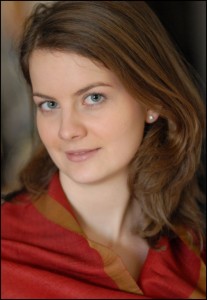UTAH SYMPHONY, Abravanel Hall, May 22; second performance 8 p.m. May 23, tickets at 801-355-2787, 888-451-2787 or www.utahsymphony.org
The 26-year-old German violinist Veronika Eberle, making her Utah Symphony debut this weekend, possesses a beautiful tone that is round, sonorous and rich in overtones. With Shostakovich’s First Violin Concerto as her debut vehicle Eberle was able to show off her remarkably lyrical side.
One of the composer’s most melodic works, the First gives the soloist the opportunity to explore her expressive side as few 20th century concertos do. In many ways it’s a throwback to the 19th century because of this aspect, yet it nevertheless is a work that belies the period in which Shostakovich wrote it (the 1940s).
Not only is it lyrical, but the First is also intense in its expressions and charged with a profound emotional palette (after all, it is by Shostakovich). And Eberle certainly knew how to get the most out of it. Her account was thoughtful and well considered and did full justice to the intent of the score.
Music director Thierry Fischer and the orchestra mirrored Eberle’s approach. Fischer elicited finely crafted and nuanced playing from his ensemble that was as sensitive and well intentioned as the soloist’s. This was an exceptional and first rate collaboration.
Rounding out the program this weekend is Mahler’s Symphony No. 4, with popular local soprano Celena Shafer singing the final movement.
Fischer captured the humor and charm of the work with his well conceived interpretation that embraced its quiet energy and flowing lines. The orchestra played with finely molded lyricism and expressiveness; and the many solo passages were well played, in particular concertmaster Ralph Matson’s extended solos in the second, Ländler-like, movement.
In the closing movement Shafer embraced the wit and vivid imagery of the text with her usual flair and technical self assuredness.
As a programmed encore, Shafer sang Richard Strauss’ lush and romantic song Morgen! with great feeling and tenderness. And Matson’s solo playing offered a delightful counterpoint to the vocal line.

